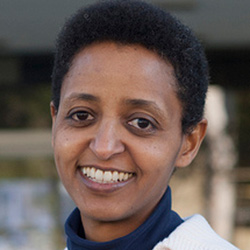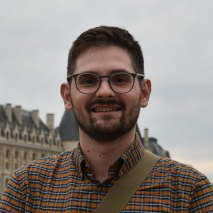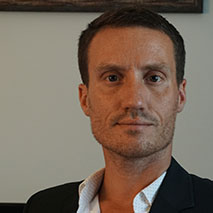Lillian Gilbreth Investiture Ceremony 2025
| Event Date: | April 4, 2025 |
|---|---|
| Time: | 1:00-3:00pm |
| Location: | Spurgeon Club in Mackey Arena |
| Priority: | No |
| College Calendar: | Show |
Ceremony Schedule
1:00 PM Welcome
Arvind Raman, John A. Edwardson Dean of Engineering, Robert V. Adams Professor in Mechanical Engineering
1:05 PM Lillian Gilbreth’s Legacy
Beth Holloway, Senior Assistant Dean for Student Access and Success, Leah H. Jamieson Director of the Women in Engineering Program, Professor of Engineering Practice, Mechanical Engineering
1:15 PM Investiture Ceremony
Dave Bahr, Senior Associate Dean for the Faculty, Professor of Materials Engineering
1:30 PM Keynote Address
2:00 PM Reception
Keynote Address:
Exploiting a Diversity of Tools and Perspectives to Advance
Low-Carbon Energy Technologies: A Personal Journey
While global CO2 emissions have risen to dangerous levels, the costs of solar and wind electricity have fallen dramatically. Today these sources outcompete all other electric power generation approaches. The challenge society thus faces is not in generating carbon-free electricity but in storing that electricity for use on demand. Electrochemical processes, in which electrical energy is used to drive chemical reactions to charge batteries or produce hydrogen, offer potential solutions for this challenge. Thermochemical processes, in which high temperature heat generated by solar concentration is similarly used to drive reactions, provide another attractive avenue for energy storage. The principles of several of these approaches and recent advances are described against the backdrop of a personal journey from refugee fleeing political turmoil to chaired professor in a top-ranked institution. A selection of the outreach efforts this journey has inspired are described.
Keynote Speaker:

Sossina M. Haile is the Walter P. Murphy Professor of Materials Science and Engineering at Northwestern University, a position she assumed in 2015 after serving 18 years on the faculty at the California Institute of Technology. She earned her PhD in materials science and engineering from the Massachusetts Institute of Technology in 1992. Haile’s research broadly encompasses materials for sustainable electrochemical energy technologies. Her work in fuel cell science and technology has pushed the field to new insights and record performance metrics. In parallel, she has created new avenues for harnessing sunlight to meet rising energy demands and demonstrated viable solutions to the challenge of hydrogen delivery. Haile directs the DOE Energy Frontier Research Center’s Hydrogen in Energy and Information Sciences program and is a Hans Fischer Senior Fellow at the Technical University of Munich. Amongst her many awards, in 2008 Haile received an American Competitiveness and Innovation Fellowship from the U.S. National Science Foundation in recognition of “her timely and transformative research in the energy field and her dedication to inclusive mentoring, education and outreach across many levels.” In 2010 Haile was the recipient of the Chemical Pioneer Award (American Institute of Chemists), in 2012 the International Ceramics Prize (World Academy of Ceramics), and in 2020 the Turnbull Lectureship (Materials Research Society). She is a fellow of the Materials Research Society, the American Ceramic Society, the Electrochemical Society, the Royal Society of Chemistry, the African Academy of Sciences and the Ethiopian Academy of Sciences. She also serves on the DOE Basic Energy Sciences Advisory Committee and on the editorial boards of Joule and MRS Energy & Sustainability. Haile is a board member of the nonprofit Ethiopia Education Initiatives, which aims to bring educational opportunities to an underserved region of the world.
Fellows:
 Vasilis Karamitros completed his PhD in computational micromechanics at Imperial College, London. He will be collaborating with Michael Sangid, Reilly Professor of Aeronautics and Astronautics, and Thomas Siegmund, professor of mechanical engineering. Their project will focus on developing physics-based crystal plasticity methods for predicting fatigue fracture and fatigue life on 3D virtual microstructures of materials used in aerospace applications. Karamitros’ primary research lies in the mechanics of materials with a specific emphasis on micromechanics at the microstructural level.
Vasilis Karamitros completed his PhD in computational micromechanics at Imperial College, London. He will be collaborating with Michael Sangid, Reilly Professor of Aeronautics and Astronautics, and Thomas Siegmund, professor of mechanical engineering. Their project will focus on developing physics-based crystal plasticity methods for predicting fatigue fracture and fatigue life on 3D virtual microstructures of materials used in aerospace applications. Karamitros’ primary research lies in the mechanics of materials with a specific emphasis on micromechanics at the microstructural level.
 Morgan Robinson received his PhD in pharmaceutical sciences from the University of Waterloo in Canada. He will collaborate with Chongli Yuan, Charles and Nancy Davidson Associate Professor of Chemical Engineering, and Yang Yang, associate professor of medicinal chemistry and molecular pharmacology, to produce advanced models of the SCN2A gene and rare neurodegenerative disorders, which will be employed to develop CRISPR-based gene therapies for treatment. Robinson’s overarching research utilizes engineering principles to develop models for studying central nervous system diseases and new therapeutic directions.
Morgan Robinson received his PhD in pharmaceutical sciences from the University of Waterloo in Canada. He will collaborate with Chongli Yuan, Charles and Nancy Davidson Associate Professor of Chemical Engineering, and Yang Yang, associate professor of medicinal chemistry and molecular pharmacology, to produce advanced models of the SCN2A gene and rare neurodegenerative disorders, which will be employed to develop CRISPR-based gene therapies for treatment. Robinson’s overarching research utilizes engineering principles to develop models for studying central nervous system diseases and new therapeutic directions.
